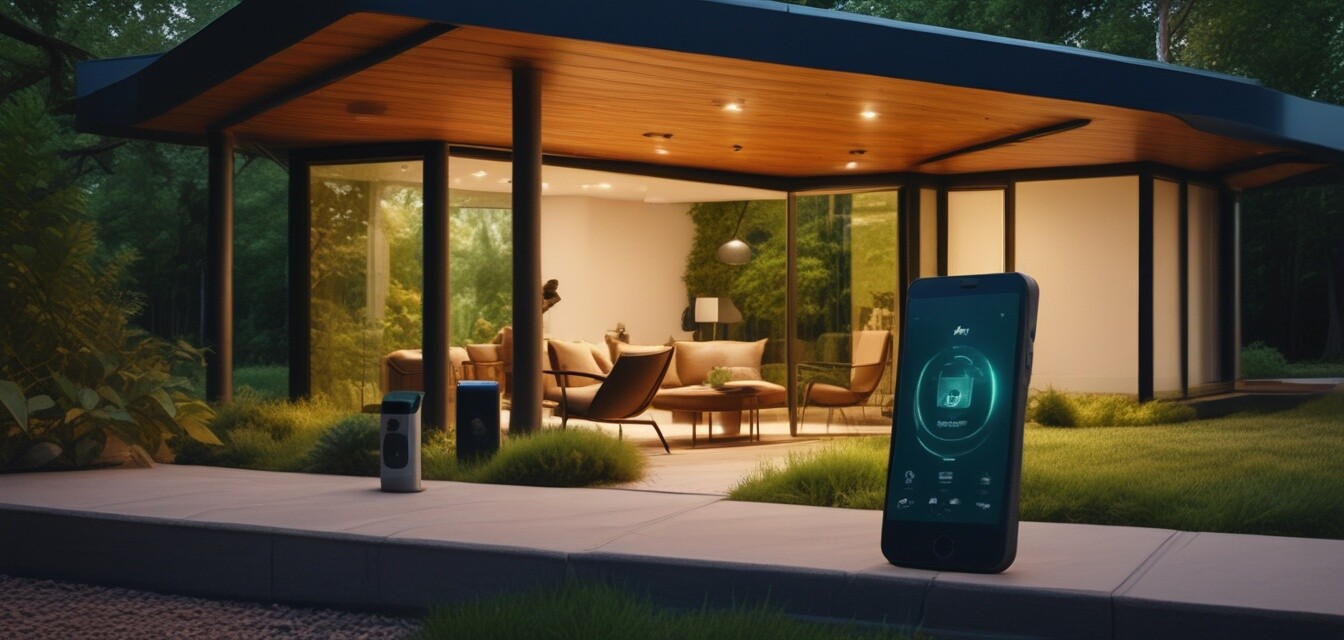
Sustainability in Smart Home Security
Key Takeaways
- Sustainable practices in smart home security help reduce environmental impact.
- Eco-friendly security devices are becoming increasingly popular.
- Homeowners can save money in the long run with energy-efficient technologies.
- Investing in sustainability can enhance home security effectiveness.
- Emerging trends include solar-powered systems and smart locks made from recycled materials.
With the rise of global concerns regarding climate change, sustainability has become an essential consideration within various industries, including smart home security. As homeowners seek ways to enhance their property’s safety, they are increasingly eager to adopt practices that not only protect their homes but are also kind to the planet. In this article, we will discuss the importance of sustainable practices in the smart home security market and highlight eco-friendly product options available today.
The impact of traditional security systems on the environment
In the past, many home security systems contributed to environmental issues through excessive energy consumption, hazardous materials, and non-recyclable products. Here are some factors that highlight the environmental impact of traditional security systems:
| Factor | Impact |
|---|---|
| Energy consumption | High energy use leads to increased carbon footprint. |
| Toxic materials | Some components are made from non-recyclable plastics harmful to the environment. |
| Waste disposal | Electronic waste from non-recyclable security products adds to landfill issues. |
Benefits of sustainable smart home security
Implementing sustainable practices in smart home security can lead to numerous advantages for homeowners and the environment alike:
- Reduced energy costs: Energy-efficient devices can lower utility bills.
- Longevity: Sustainable products often have longer life spans, reducing the need for replacements.
- Increased property value: Eco-friendly features can enhance home resale value.
- Healthier living environment: Sustainable materials and practices improve indoor air quality.
Eco-friendly product options in smart home security
As consumers demand sustainable options, many manufacturers are developing eco-friendly products. Below are some innovative solutions available:
| Product Type | Eco-friendly Option | Benefits |
|---|---|---|
| Surveillance cameras | Solar-powered cameras | Reduce reliance on electricity, ideal for remote areas |
| Smart locks | Locks made from recycled materials | Minimize waste and promote recycling |
| Alarm systems | Wireless systems using rechargeable batteries | Less waste from disposable batteries and battery replacements |
| Motion sensors | Energy-efficient motion detectors | Lower energy consumption, enhancing battery life |
Emerging trends promoting sustainability
The smart home security industry continues to innovate, embracing sustainability in numerous ways. Here are some trends that stand out:
- Integration with renewable energy sources: Many systems now allow integration with solar panels and wind turbines.
- Use of sustainable materials: Manufacturers are seeking out recycled and biodegradable materials.
- Smart technology: AI and smart technology help optimize energy usage, reducing waste.
- Improved battery technology: Next-generation batteries are more energy-efficient and longer-lasting.
What you can do to promote sustainability
As a homeowner, there are several ways you can promote sustainability within your smart home security setup:
- Choose products from brands committed to sustainable practices.
- Consider energy-efficient and eco-friendly systems when upgrading your home security.
- Maintain your devices regularly to prolong their lifespan and reduce waste.
- Advocate for and stay informed about sustainable practices in the home security industry.
Tips for selecting sustainable smart home security products
- Look for certifications like Energy Star or eco-labels that signify sustainable practices.
- Research product materials to ensure they are recyclable or made from sustainable sources.
- Read reviews that focus on environmental impact and sustainability.
- Consider the total lifecycle cost of products, including energy consumption and maintenance.
Conclusion
In conclusion, sustainability is increasingly crucial in the smart home security market. By adopting eco-friendly practices and choosing sustainable products, homeowners can enhance their security while positively impacting the environment. Stay updated with the latest trends and consider the many options available to create a safer, greener home.
For more information on sustainable home security options, check out our articles on Access Sensors, Smart Locks, or our Security Tips section.